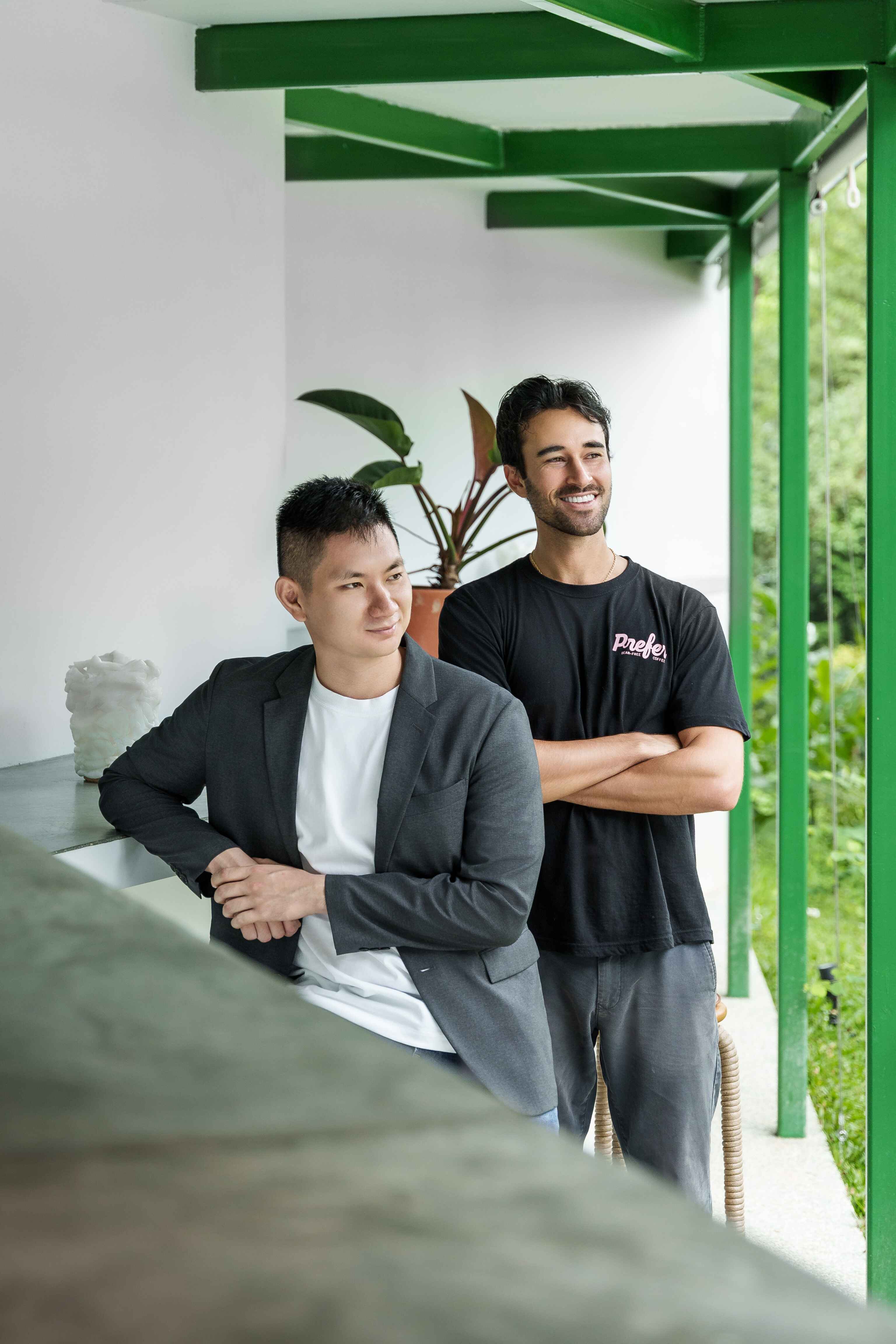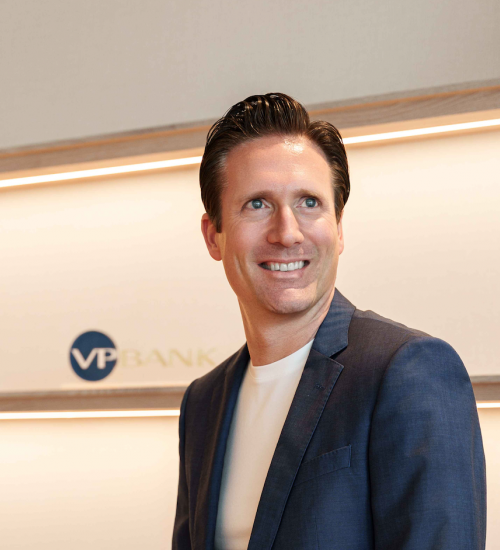In exploring the interconnected realms of environmental stewardship and social responsibility, we dive into the dynamic landscape of sustainability in action. Through conversations with a handful of changemakers, we discover how their strategies are driving positive change across industries. At the same time, we learn more about the indispensable role of sustainable investments, showcasing how financial support and capital allocation are essential in realizing transformative sustainability goals.
PREFER BEAN-FREE COFFEE
Jake Berber, Co-Founder & CEO
Ding Jie (DJ) Tan, Co-Founder & CTO
Sustainability is at the heart of what you do. Can you tell us what inspired your journey and what the experience has been like so far?
Jake: DJ and I met at Entrepreneur First, a start-up accelerator that “match makes” entrepreneurs seeking a co-founder. While I’m considered a non-technical founder as my background is in business strategies and plans, DJ’s a food scientist and fermentation expert, which makes us a strong duo to tackle this challenge. Our journey into the foodtech space was driven by a shared belief that fermentation technology could revolutionize sustainable foods in a way that is scalable in production and affordable for both businesses and consumers.
DJ: Innovation is about solving problems – we chose coffee as our first product because it’s a commodity with increasing demand and is a climate-threatened crop due to diminishing arable land. It’s also a flavor I’m familiar with as I took a barista certification back in my university days.
After deciding on coffee as our first focus, we had a breakthrough when we discovered that seemingly ordinary soy, bread, and barley could be transformed into similar flavor molecules present in coffee. We then decided to formulate our coffee with food manufacturing by-products to further decrease our carbon footprint and mitigate food waste. It’s a challenging journey to get the flavor right and it took us extensive R&D of over hundreds of prototypes before we finally landed on our current iteration, but it’s rewarding when we’re told that our beverage is delicious!
What kind of impact are you hoping to make in Singapore and the region? At the same time, how do you walk the talk?
DJ: Our goal with Prefer is to create flavors and ingredients that are less reliant on farming and more resilient in the face of climate change. By starting with coffee, which is a widely-consumed beverage, we want to prove that it’s possible to create alternatives that are just as good as the traditional.
We walk the talk by using food by-products as our main ingredients – day-old bread, soy pulp, and spent barley that can be easily sourced from other businesses who are often more than happy to send our way. Our ground coffee is also designed to fit seamlessly into current cafe operations and we constantly improve our product based on feedback from businesses and consumers.
The sustainability journey is not always easy. What kind of challenges have you encountered and what difficult conversations have you had in pursuit of doing the right thing?
Jake: The main challenge so far is convincing businesses to adopt a new and unconventional product. There aren’t a lot of others like us and we’re the first in Asia to launch bean-free coffee. Most businesses are concerned about public perception and whether customers will actually order a bean-free coffee beverage. We knew from the start that our product is not for everyone as not all will immediately understand the concept of bean-free coffee and there will always be purists.
While we try our best to keep our grounds affordable for businesses, we ultimately do not have the say in how they price their drinks as there could be other factors determining their margins. Nevertheless, we remain committed to our mission and will continue to engage with our stakeholders for the betterment of their operations.
Sustainable investing is on the rise. Some may see it more as a moral obligation rather than the real value that it can add to an investment portfolio. What are your thoughts on this?
DJ: Sustainable investing can lead the way in signalling an appetite for innovation and a demand for market solutions. This pushes entrepreneurs like us to take larger risks, explore cutting-edge technologies, and in turn, return more benefits to consumers and society at large.
There is profitability in it too for investors expecting financial returns. In our case, we had to prove that there will be demand once our product goes live by presenting statements in our pitch. Whether it’s a moral obligation or not, it’ll still lead to a positive impact – environmentally and socially. But of course it’s always better if investors are actually aligned in finding sustainable solutions.
Jake: Sustainable investing is not just about doing the right thing; it's also about creating value for investors and society as a whole. I always say that climate change is the biggest problem of our generation and more consumers these days are taking notice of practices and adjusting their own. This in turn could make companies that prioritize sustainability more resilient and relatable to consumers in the long run.
How do you ensure that your sustainability efforts are sustained in the long run? What kind of support have you received and what more is needed?
DJ: From the production side, our bean-free coffee is made from food manufacturing by-products that are ubiquitous and readily accessible. Our scalable production process doesn’t require heavy or expensive machinery, as the bulk of the magic is done by the microbes we use.
Jake: We've received great support from investors and customers so far, which has been crucial in driving our sustainability efforts. However, more support is always needed, especially in terms of raising awareness and adoption of sustainable practices. Collaborations with like-minded partners and continued innovation will be key to ensuring our sustainability efforts are sustained in the long run.











 Back
Back
